|
After last week’s listener question episode called "My Bids Are Coming In Well Above Expected, What Should I Do?" I thought that a more in-depth lesson on the bidding process would be helpful. So that’s what we’re talking about this week-- bidding. Once we have a detailed plan of our project, in the form of accurate construction/architectural drawings and written specifications, the bid process can begin. Our goal in going through a competitive bid process is not just to get the lowest price for the job, but to get the best quality work for the lowest price. Before we dive into the mini lesson, let’s define a few pro terms. We may have talked about these in previous episodes, but I think we need a review before we move on. Our pro terms this week are construction drawings, specifications and construction bids. PRO TERMS Construction drawings are often called house plans and include the floor plan and the elevations (exterior images) of the house. They might also include a wall section, which is a technical drawing of a cross section through the home’s wall. A wall section shows what’s inside a wall. The construction drawings demonstrate the shape, appearance, and dimensions of a house. Any details missing on the house plans should be clarified in the specifications. Specifications, or specs, describe what materials will be used and how they should be installed. You’ll need specs for the major trades like electrical and plumbing, but also for smaller parts of the project like painting, roofing, concrete work, and flooring. At a minimum, specifications list the materials and any special installation requirements. Specs are much more valuable, though, if they’re more detailed. The specifications don’t have to detail every nail and screw of the job, but they should include specific detail, such as the manufacturer and model number (if you know them) and possibly the size, weight, and dimensions of different materials. In addition, specs should specify the method of installation or construction you want. Construction bids are proposals prepared by subcontractors for each part of the work to be done on a project. Subcontractors usually specialize in one specific type of work. Bids detail how that tradesperson will complete the work— what materials and methods will be used and how much that will cost. The bid is not a contract. It’s kind of a pre-contract document. A contract is a legal document, a bid is not. Once you accept a bid, you will proceed to the contract phase. Okay, now that we have those pro terms straight, let’s move on to the mini lesson. If you are acting as the general contractor for your house, you’ll have to manage the bid process. That can be very time consuming. It may take 4-8 weeks to go through the entire bid process. So start well ahead of the date you want to start construction. If you are hiring a builder, he will handle the bid process, if he even uses a bid process. Some general contractors employ tradespeople who work for them on all their projects. Since those GCs already have tradespeople working for them, they don’t need to participate in a bid process to find subs. Even GC’s who have no employees might not want to go through a bid process. They forgo the bid process because they want to hire specific tradespeople they've worked with in the past. Many builders don’t want to go through bid process because it’s easier and less time consuming to go with subcontractors they know and trust rather than to "shop around”. Before you hire a general contractor to build your home, you might consider making the bid process a stipulation of him getting the job. Consider requesting that he go through a bidding process and that you go over the completed bids together. The bid process will give you as homeowner a level of confidence that the contractor is being diligent in shopping around for the best prices, instead simply hiring all his buddies for your project. If the builder has buddies in each trade that he likes to work with, you could ask that he gets a bid from each buddy, plus at least 2 additional bids for each trade. That way you can make sure that his favorite subs have competitive prices. Alternatively, you can ask if it’s ok if you give the plans and specs to a few trades and get bids on your own to compare with the builders bids. The builder might not like this, but this will help to make sure you are getting fair prices for your project. Now remember, you’re not necessarily looking for the cheapest sub, you’re looking for the sub that can do the best quality work for the best price. I hear over and over again, whether you are acting as a general contractor or hiring a general contractor, the quality of your finished home is greatly dependent upon hiring subs who do good quality work. If the builder’s favorite subs are slightly higher in price than his competitors, it might be worth going with the GC’s favorites because they most likely have a history of doing good work. If however, his favorite subs’ prices are significantly higher than the competition, you can ask your GC to negotiate for a lower pricer or you can go with the cheaper bid, as long as the cheaper sub has a good reputation. Alright, now let’s say you are an owner-builder and will be going through the bid process without a builder. Here’s what you do: Once your house plans are complete, you’ll need numerous paper copies of those plans made. You can google “blueprints” and your area to find out where you can get copies made. The more copies you have, the more quickly they can be distributed to each sub bidding on your project. Some subs are ok with electronic copies of the plans, but honestly, most subs that I’ve talked to prefer paper copies. Ideally, you’ll want a list of 3 to preferably 5 subcontractors for each trade. If you’re not sure what subcontractors you need and how to find them, you can listen to 2 of our past episodes for help. Episode 22 called "What subcontractors do I need to hire to build my new home and how should I manage them?" And episode 94 called "16 Effective Tips For Finding and Hiring a Good Subcontractor" Ok, so after you’ve made your list of 3-5 subs per trade who will be bidding on your project, you’ll need to set up a time to meet each subcontractor on your home site with the bid package. The bid package should include the house plans, the specifications, and a document with administrative information like the property address, a request for copies of the sub’s insurance and license, the tentative construction schedule, your contact info, and the bidding deadline. It’s customary to give subs about 3 weeks to complete their bids. Some people also include a sample contract in the bid package. You can also ask how long the bid is good for in case you aren’t planning to start construction right away. As an owner builder, with a little help from Google and maybe a consultant, you can pretty easily come up with the administrative info for the bid package. And you’ll get your house plans online or from your architect or house designer. But where do we get specs? Well, you can attempt to write them yourself, but I’ll tell you, you have to have a lot of specific knowledge about all the different areas of construction to do that. For example, you don’t just need to document that you want a concrete slab foundation. You’ll need to specify the thickness of slab and strength of concrete you want used. For the electrical wiring specs, you need to specify the type of wiring and load centers, number of circuits per unit, individual unit metering or project metering, plus the space conduit for future load requirements, and radio or TV antenna systems. Ok, frankly, I don’t even know what most of that stuff is. So, for me, writing up my own specifications is not realistic. But, if you have a fairly good understanding of all of the specifics of what you want in your new house, you could write up your own specifications. There is spec-writing software out there that you could use to help, including; • eSpecs • SpecWriter • UDA Residential Specifications. Disclaimer: I know nothing about those programs. I haven’t tried them and I’m not going to use them, but they’re the spec writing software programs I found in my research. For those of us who lack the time, experience and knowledge to come up with the specifications, we can get specs from an architect or a builder. Specs are often included in your architectural package if you’ve hired an architect to design your house and a part of the construction package if you hired a builder to build your house. If you’ve hired a builder and have no interest in being involved in the bid process or in choosing specific materials for your house, you may never see the specifications. If you are an owner-builder who is not using an architect or builder, you might want to hire either professional as a consultant to do your specifications from a set of house plans. If you don’t want to do the specifications all by yourself, but want to be involved in choosing some of the materials and methods for your new home, you can develop a list of all the materials and methods that you know we want. In that case, we should list as many products as we can by brand name and model, if possible. Plus an specifics that you know are important to you. For example, if you know you want wood, double-glazed windows with a low-E coating and a high solar gain coefficient, put that on the list. If you know what brand and style of window, list that. If you know that you want those windows to meet Energy Star standards, add that to the list. For most products, you can specify that they be installed “according the manufacturer’s printed instructions.” Take a look at the template below. They might help you organize your thoughts. It is not meant to be formal professional specification sheet, just something that you can give to your architect or builder to show them some of the materials you have in mind for the construction of your house. Below is the link to the spec template. I said on the podcast there would be 2, but there's actually only one. This is the best one I found. You can Google "Residential Specification Template" if you want to see more examples. http://www.webreader.com/download/construction_sheet.pdf After you have developed a list of materials that you want included in the specifications, be sure to give your consultant, and even the subs bidding on the house, the go ahead to tell you if something you’ve specified doesn’t make sense because of your budget or for some other reason. Since we are not experts, getting input from building professionals can be really helpful. What's the big deal about making the specs so detailed? When you don’t supply subs with detailed specifications for the bid process, competitive bidding can encourage some subs to plan for sub par construction methods and use of lower quality materials and craftsmen. The bid might include those poor quality materials and methods to come up with a low ball bid, in hopes of landing the job. So, it’s a good idea to develop a detailed specification document so all subs will be bidding on the same materials and scope of work. To make bid comparisons easier, consider including a standardized bid sheet with the construction documents and ask the contractors to submit their bids on that standardized form. You should be able to find one online. That standardized form will make it easier to evaluate the various numbers once you get the bids back. It’s ok if the tradesperson wants to submit the bid in his own format, but ask if he can also submit the info to your standardized form. Subs probably won’t want to use the standard form and may give you some resistance, especially if they have plenty of work on the horizon. Depending on how much resistance you get, you may have nix the standardized bid form idea, but it’s worth asking about since the standard form will make it so much easier for you to compare bids. A huge advantage of the bid process is that it gives you as homeowner an opportunity to get feedback on your project and ask the tradespeople if they see anything in the plans or specs that’s missing or that can be changed to save you money without significantly compromising the quality or the timeline. Ask the subs to make notes of things they would modify and look over their suggestions when you get the bids back. Alright, what's next? Once you receive the bids, review them carefully, side by side, with others. Break each bid down comparing them item by item, including labor, materials, extra work, and upgrades. One contractor may include work that another considers an extra. It’s important to take that into account. If your specifications are very detailed, though, the bids should be pretty similar. Differences might be due to one sub having cheaper overhead and labor and better prices for supplies and materials. Be cautious of bids that are much higher or much lower than the others. Carefully evaluate those bids against your specifications, making sure that the extra high bids don’t include higher grade materials and methods than you’ve detailed in the specs. You should also question why extra low bids are significantly cheaper. If one bidder is way below the rest of the pack, there has to be an explanation: either the sub is working for a lot less money, or he has much lower overhead, or he’s using inferior materials (which you can guard against with detailed specs), or he made an estimating error. If the sub has made an oversight and you get a bid back that doesn't include certain items that you want, give the sub an opportunity to revise their bid. He may have simply overlooked that detail. And if for whatever reason, you make any revisions to the plans during the bid process, make sure you send the changes our to all bidders, so that everyone is bidding the same details. If you have a good feeling about a subcontractor but his bid is significantly higher than others, ask him why. There might be some good reasons. You could also ask him to if he can come closer to the lower bid price. When you get bids back from the subcontractors, make sure they have given you copies of their license and insurance so you can review them. You’ll want to make sure they are up to date. If they can’t produce license and insurance documents, cross them off the list. Before making your final choices for subs, check out each company on the Better Business Bureau website and call at least 3 references— including a builder or homeowner from one of the subs’ recent jobs, plus a builder or homeowner from a job that the sub completed 5 to 10 years ago, just to see how well their work is holding up. Next, interview each sub by on the phone. You might ask questions like… -How much lead time will you need to have crews on my job site? -How many days will it take to finish each phase of your work? -Can you commit to a timetable for finishing? -What do you need from me to ensure an on time start and finish? -Can you recommend subcontractors in other trades that you think would do a good job on this project and charge a fair price? -How do you charge for change orders? -How long do you warranty your work? Ask the major subs if they would be willing to do a preconstruction dinner meeting to discuss the project with the other major subs. Finally, chat with them about any changes they might have come up with to save money on your project. After the interviews, you should have a good, or a bad feeling about each sub. Your final decision may be based less on price and more on your gut feeling about each sub, plus their references, and their responsiveness to your phone calls. A final word about the bid process… Not all subs who are invited to bid on your project will bid on your project. They have to decide if it’s worth their while to spend hours and hours working on a detailed bid. Just like you are sizing up the contractors, they are sizing you up too, and your job. They have to decide:
All those factors will be taken into account and weighed against the sub’s need for work. Competitive bidding is still the most common approach for awarding construction contracts. It usually gets the homeowner the most work for the least money. Choose the lowest bidder who you trust the most— the lowest bidder who you have the best feeling about. Even if you don’t choose the absolute lowest bidder, spending an extra 2% for peace of mind and better quality work is well worth the extra cost. That’s it for our mini lesson. Let’s review a couple of key points with a some quiz questions. QUIZ 1. True or False. A construction bid is a contract. That’s False. A bid is a proposal, not a contract. Bids detail how subs will complete the work for a project— what materials and methods will be used and how much that will cost. 2. The bid package that is given to each sub bidding on the project should include what? A. House plans B. Specifications C. Administrative info like the property address, your contact info and the bidding deadline D. All of the above The answer is D, all of the above. 3. It’s customary to give tradespeople how long to complete a bid? A. 1 week B. 3 days C. 3 hours D. 3 weeks The answer is D, 3 weeks. Please remember that the purpose of this podcast is simply to educate and inform. It is not a substitute for professional advice. The information that you hear is based the only on the opinions, research and experiences of my guests and myself. That information might be incomplete and it is subject to change. In addition, building codes and requirements vary from region to region, so it may not apply to your project. Always consult a professional about specific recommendations for your home. Well, that's it. I hope you learned as much as I did and I hope you join me next week for the next edition of Build Your House Yourself University--BYHYU.
2 Comments
4/4/2019 12:07:02 pm
That's good to know that most subs tend to prefer paper copies of blueprints rather than an electronic copy when you are looking for bids. This is helpful since we're looking to raise our home a bit since we live near a lake that can flood. We'll have to find someone that can help us with the blueprints so we can get those printed and then we'll have to find contractors in our area that we can send them to, to see who can do the work.
Reply
Michelle@BYHYU
4/4/2019 02:56:25 pm
Oh boy, a lake house, how exciting!!
Reply
Your comment will be posted after it is approved.
Leave a Reply. |
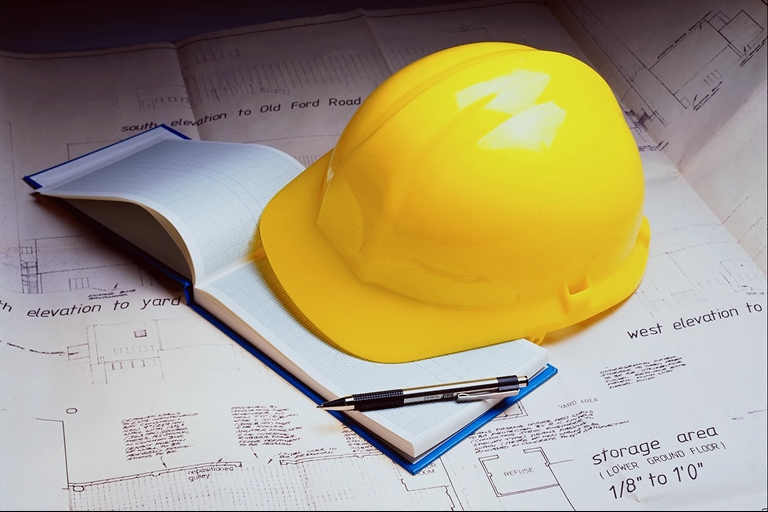
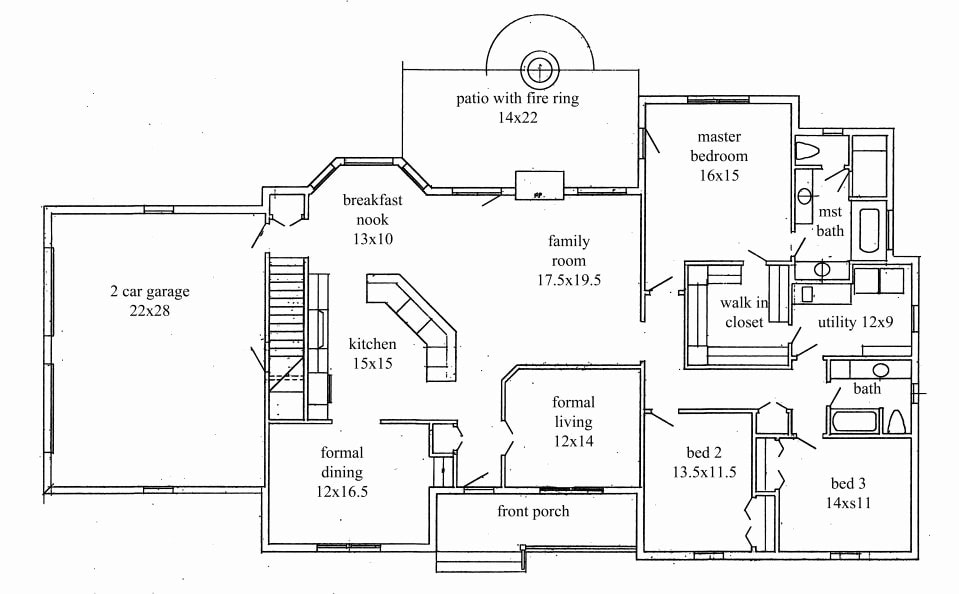
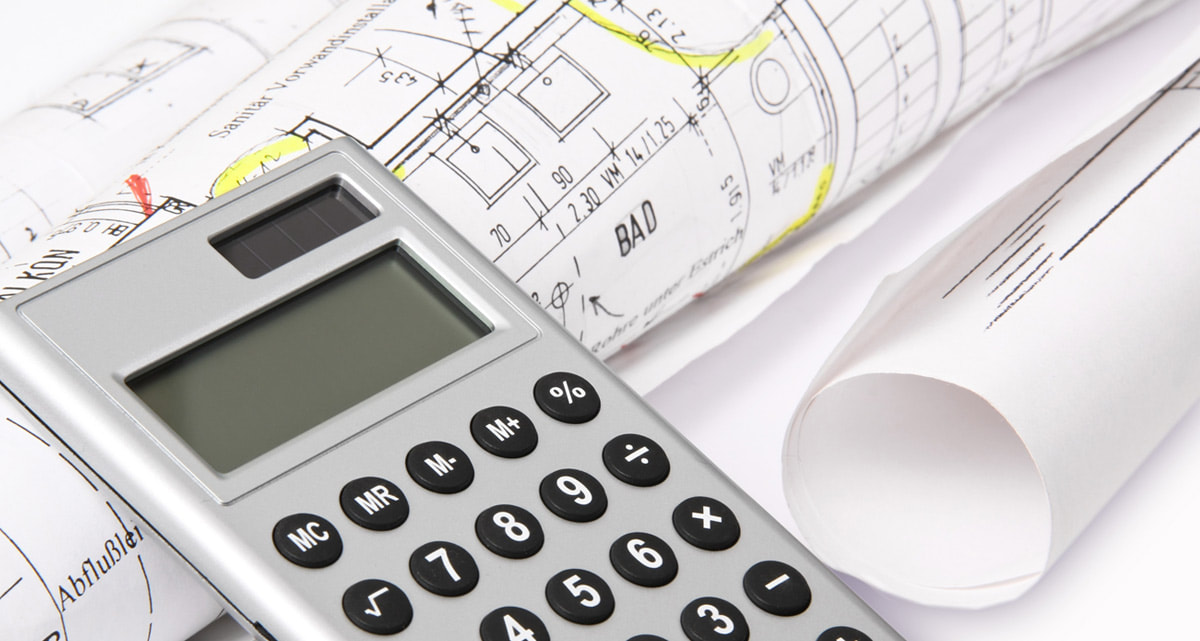
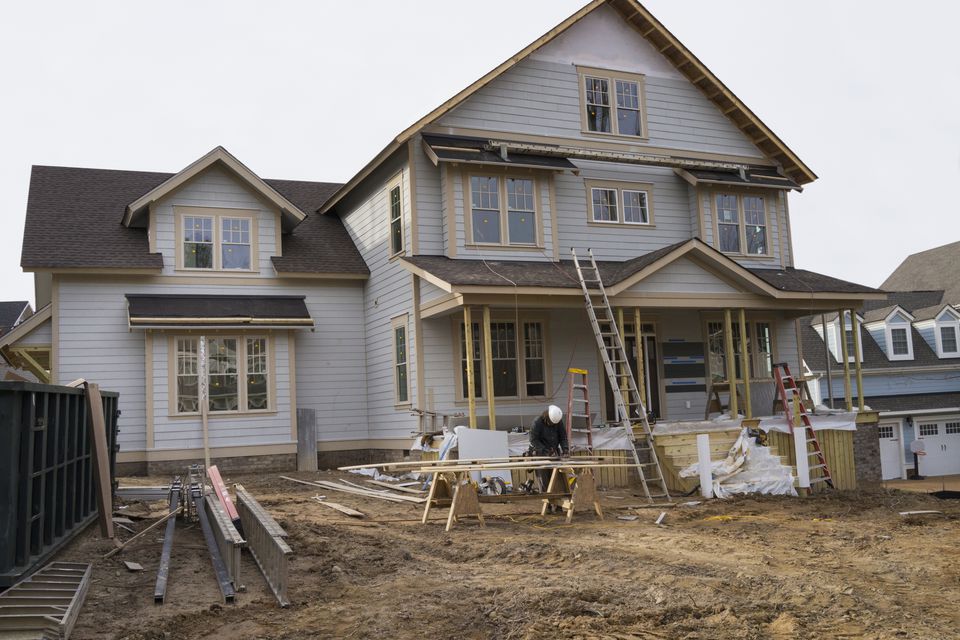
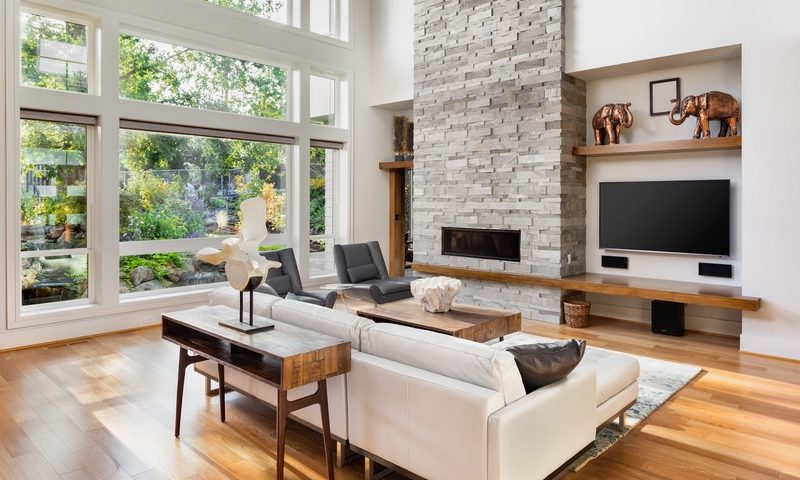
 RSS Feed
RSS Feed